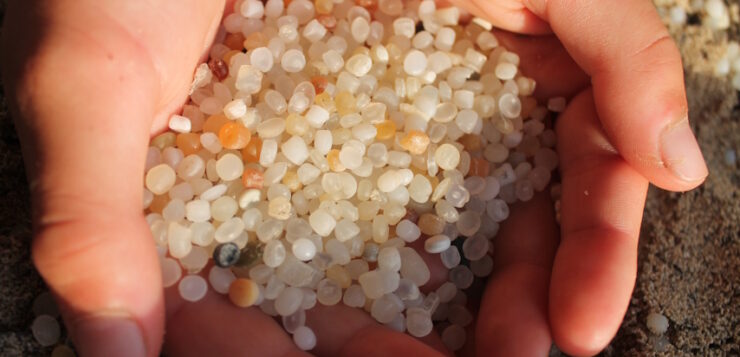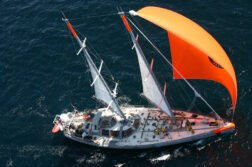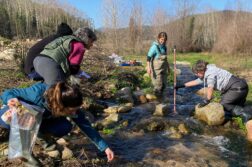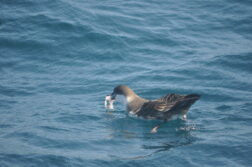97% of non-natural materials analyzed in the Mediterranean are plastics, according to a study conducted by scientists from CEAB-CSIC. The article warned that about 1,500 tons of plastic were floating in our sea. Since then, the problem has not improved; currently, it is estimated that our sea contains 2,000 tons of plastic particles.
The spill of pellets on the Galician coast has once again brought attention to the issue of plastic pollution. The presence of macro, meso, micro, and nano-plastics in the waters of seas and oceans seriously harms the biodiversity they host, as well as human health since they are in the food chain.
The Mediterranean Sea is one of the areas in the world that suffers the severe consequences of this type of pollution. It is among the marine areas with the highest human pressure. Unfortunately, this results in extremely high rates of pollution from marine debris and microplastics.
A team of researchers from CEAB-CSIC quantified the problem in 2016 in the scientific article resulting from the NIXE III project.
Fieldwork was carried out with several trips between 2011 and 2013. About a hundred water samples were taken from points across the Mediterranean. After analysis, it was confirmed that, on average, there were 147,500 plastic particles per square kilometer of water surface. With this data, it was extrapolated that the entire Mediterranean accumulated about 1,455 tons of plastics.
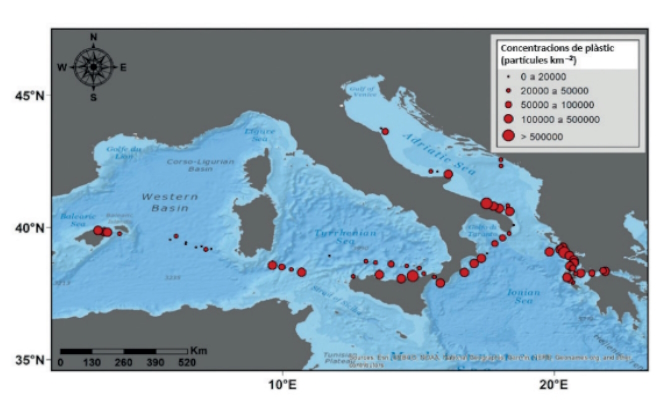
The lead researcher, Luis F. Ruiz-Orejón, explained that “when plastics are thrown into the water, their fragmentation process begins. They break into smaller and smaller pieces, increasingly difficult to detect. Microplastics measure less than five millimeters. The smaller the particles, the more problematic, as they can enter many more organisms.”
Plastics are ingested directly by numerous species, and others eat them indirectly when they ingest the former. This way, it also reaches humans, with health consequences that are still under study.
In their work, Ruiz-Orejón and CEAB-CSIC researcher Rafael Sardá emphasized the importance of monitoring plastic pollution in seas and oceans to provide new information to distribution models. Action was urged to combat it and avoid serious consequences for biodiversity and human health.
What does science say about combating plastic pollution?
Researchers from the Spanish National Research Council (CSIC) have prepared a report to guide public policies aimed at reducing this type of pollution.
Among the conclusions of this report, there is an unavoidable and urgent need to reduce plastic consumption and improve waste treatment, both in terms of collection and recycling.
Science For Policy reports are part of a strategic project driven by the presidency of the CSIC to contribute to defining evidence-based policies. Developed by teams of CSIC researchers, these documents address major scientific and social challenges such as bacterial resistance to antibiotics, fires, droughts, energy generation, food production, or plastic treatment. Their goal is to serve as a bridge between research centers and policymakers to help define evidence-based public policies.
Additional information:
-
CSIC- Ciencia para las políticas públicas: “Combatir la contaminación por plásticos”
-
Informació Prismàtic sobre la contaminació per microplàstics
-
Article científic Marine Environmental Research: Floating plastic debris in the Central and Western Mediterranean Sea, Ruiz-Orejón, Luis F.; Sardá, Rafael; Ramis-Pujol, Juan
- NIXE III project: Passat, present i futur de la Mediterrània
-
Microplastic Watchers (ciència ciutadana per combatre la contaminació per microplàstics a través d’ Observadores del Mar)


